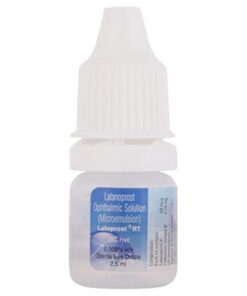Description
Albendazole is an anti-parasitic medication used to treat various parasitic infections, including those caused by roundworms, tapeworms, and other parasites. It is commonly prescribed for conditions such as neurocysticercosis, hydatid disease, and hookworm infection.
Albendazole works by inhibiting the formation of essential structures in the parasites, leading to their destruction. It is typically taken orally, either as a tablet or a suspension, and is often prescribed for a specific duration, depending on the severity of the infection.
Some side effects of Albendazole include nausea, vomiting, abdominal pain, and headache. In rare cases, it may cause more serious side effects, such as liver problems or a decrease in white blood cells. It is essential to inform your healthcare provider if you experience any severe side effects while taking Albendazole.
Before taking Albendazole, it is crucial to inform your healthcare provider if you have any liver problems, are pregnant or planning to become pregnant, or are breastfeeding. In some cases, Albendazole may interact with other medications, so it is essential to provide a complete list of your current medications and supplements to your healthcare provider.
Always follow your healthcare provider’s instructions when taking Albendazole, and do not stop taking the medication or adjust the dosage without consulting your healthcare provider first.
Albendazole is a prescription medication that belongs to a class of drugs called anthelmintics. It is commonly used to treat parasitic infections caused by a variety of worms, such as roundworms, hookworms, and tapeworms.
The medication works by inhibiting the formation of essential structures in the parasites, which leads to their destruction. This helps to eliminate the parasites from the body and alleviate the symptoms associated with the infection.
Albendazole is available in tablet and suspension forms, and the dosage and duration of treatment will depend on the specific infection being treated. It is essential to follow your healthcare provider’s instructions carefully when taking Albendazole.
Some common side effects of Albendazole include nausea, vomiting, abdominal pain, and headache. In rare cases, it may cause more severe side effects, such as liver problems or a decrease in white blood cells. If you experience any serious side effects, contact your healthcare provider immediately.
Before taking Albendazole, inform your healthcare provider if you have any liver problems, are pregnant or planning to become pregnant, or are breastfeeding. The medication may interact with other medications, so it is essential to provide a complete list of your current medications and supplements to your healthcare provider.
Always follow your healthcare provider’s instructions when taking Albendazole, and do not stop taking the medication or adjust the dosage without consulting your healthcare provider first.
BENEFITS:
Albendazole is an effective medication for treating various parasitic infections, providing several benefits to those affected by these conditions. Some of the benefits of Albendazole include:
- Effective treatment: Albendazole is a potent anthelmintic drug that works by inhibiting the formation of essential structures in parasites, leading to their destruction. This makes it an effective treatment option for a wide range of parasitic infections.
- Wide range of applications: Albendazole can be used to treat infections caused by different types of worms, such as roundworms, tapeworms, and hookworms. This versatility makes it a valuable medication for healthcare providers.
- Alleviation of symptoms: By eliminating the parasites from the body, Albendazole can help alleviate the symptoms associated with the infection, such as abdominal pain, diarrhea, and anemia.
- Improved quality of life: Successful treatment of parasitic infections can lead to an improved quality of life for those affected, as they are no longer burdened by the symptoms and complications of the infection.
- Potential prevention of complications: In some cases, parasitic infections can lead to severe complications if left untreated. By effectively treating the infection, Albendazole can help prevent these complications from developing.
It is essential to consult with a healthcare provider to determine if Albendazole is the appropriate treatment for a specific parasitic infection and to follow their instructions for dosage and duration of treatment.
SIDE EFFECTS:
Albendazole, like many medications, may cause side effects in some individuals. Some common side effects of Albendazole include:
- Nausea and vomiting
- Abdominal pain or discomfort
- Diarrhea or loose stools
- Headache
- Dizziness or lightheadedness
- Rash or itching
- Loss of appetite
- Fatigue or weakness
In rare cases, Albendazole may cause more severe side effects, such as:
- Liver problems, which may manifest as jaundice (yellowing of the skin and eyes), dark urine, or pale stools
- A decrease in white blood cells, which may increase the risk of infections
- Seizures or convulsions
- Allergic reactions, which may include swelling of the face, tongue, or throat, difficulty breathing, or hives
If you experience any severe side effects or if your symptoms worsen while taking Albendazole, contact your healthcare provider immediately. It is essential to weigh the potential benefits of the medication against the risk of side effects and discuss any concerns with your healthcare provider.
PRECAUTIONS:
Before starting treatment with Albendazole, it is crucial to discuss your medical history and any existing health conditions with your healthcare provider. Some precautions to consider include:
- Allergies: Inform your healthcare provider if you have any known allergies to Albendazole or any other medications.
- Pregnancy and breastfeeding: Albendazole should be used with caution during pregnancy, as it may cause harm to the developing fetus. It is also not recommended while breastfeeding, as the drug can pass into breast milk.
- Liver problems: Albendazole may cause liver damage in some individuals. If you have a history of liver disease or are taking other medications that can affect liver function, your healthcare provider may need to monitor your liver enzymes closely during treatment.
- Blood disorders: Albendazole may cause a decrease in white blood cells, which can increase the risk of infections. If you have a history of blood disorders or are taking medications that can affect blood cell production, your healthcare provider may need to monitor your blood counts during treatment.
- Surgery: Albendazole may increase the risk of bleeding during and after surgery. If you are scheduled for any surgical procedures, inform your healthcare provider about your use of Albendazole.
- Drug interactions: Albendazole may interact with other medications, such as antacids, cimetidine, or dexamethasone. Inform your healthcare provider about all the medications you are taking to avoid any potential interactions.
Always follow your healthcare provider’s instructions and dosage recommendations when taking Albendazole. If you have any questions or concerns, do not hesitate to discuss them with your healthcare provider.







162 reviews for Zentel 400 mg (Albendazole)